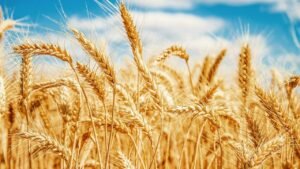Introduction to Agrawau
Agrawau represents a pivotal evolution in the realm of sustainable agriculture, highlighting the intersection of ecological stewardship and technological innovation. As global concerns regarding food security, environmental degradation, and climate change escalate, Agrawau has emerged as a beacon of hope. This concept integrates time-tested agricultural practices with modern scientific methodologies, aiming to enhance food production while safeguarding natural resources.
Originating from the collaborative efforts of agriculturalists and environmental scientists, the term “Agrawau” is a synthesis of various sustainability principles. It encapsulates the ideas of agroecology, conservation agriculture, and precision farming, creating a holistic approach to farming that promotes biodiversity and soil health. By harnessing local ecological knowledge coupled with advanced technologies, Agrawau seeks to design agricultural systems that are not only productive but also resilient and adaptable to changing climatic conditions.
Today, Agrawau has garnered significant attention among a diverse audience, including farmers, researchers, and consumers who are increasingly aware of the sustainability challenges our world faces. Agriculturalists are recognizing the value of Agrawau in optimizing yields while minimizing environmental impact. Meanwhile, scientists are keen to explore its methodologies to address pressing issues such as soil erosion, water scarcity, and greenhouse gas emissions. Consumers are also drawn to Agrawau as there is a growing demand for transparency and sustainability in the food supply chain.
In essence, Agrawau signifies not just a technique, but a revolutionary mindset that promotes the integration of sustainable practices into the fabric of modern agriculture. As we delve deeper into the intricacies of Agrawau, it is crucial to understand its core principles and how they serve as a competitive advantage for innovative agricultural practices.
The Benefits of Agrawau
Agrawau represents a significant leap forward in sustainable agriculture, offering multiple benefits that enhance farming practices. One of the most notable advantages of incorporating Agrawau techniques is the reduction of environmental impact. Traditional farming methods often lead to soil degradation, water depletion, and loss of biodiversity. In contrast, Agrawau promotes organic farming and regenerative practices, which help restore ecosystems and improve soil health. By reducing reliance on chemical fertilizers and pesticides, Agrawau contributes to cleaner water systems and lowers the carbon footprint associated with agricultural production.
Another critical benefit of Agrawau is its potential to vastly improve crop yields. Through the application of innovative techniques and technology, Agrawau cultivates a more precise approach to farming, optimizing resource use. For instance, controlled irrigation systems and precision agriculture help farmers to apply water and nutrients more effectively, leading to healthier crops and increased harvest sizes. Numerous case studies demonstrate how farmers adopting Agrawau methods have achieved yields that exceed conventional farming practices, resulting in enhanced food security and sustainability.
Furthermore, Agrawau emphasizes regenerative practices that significantly enhance soil health. Healthier soils provide better nutrient availability and foster a balanced ecosystem where beneficial microorganisms thrive. Techniques such as cover cropping and crop rotation, which are integral to Agrawau, not only prevent soil erosion but also improve soil structure. These practices contribute to long-term soil sustainability and productivity, ensuring that future generations can benefit from robust agricultural systems.
The implementation of Agrawau is already yielding positive results across various farms worldwide, showcasing its effectiveness in transforming agricultural practices. From reduced environmental footprints to enhanced crop yields and improved soil health, the benefits of Agrawau are crucial for the future of sustainable agriculture.

Challenges and Criticisms of Agrawau
While Agrawau presents a myriad of advantages in the realm of sustainable agriculture, it is not without its challenges and criticisms. One prominent concern is the technological barriers that farmers might encounter when adopting Agrawau practices. Many smallholder farmers, especially in developing regions, often lack access to advanced agricultural technologies like sensors, data analytics, and automated systems, which are essential to effectively implement Agrawau methods. This digital divide can hinder the widespread adoption of Agrawau, creating inequalities in agricultural productivity.
Furthermore, the initial investment costs associated with transitioning to Agrawau may deter farmers from making the switch. The capital required for new equipment, technology, and training programs can be substantial, particularly for those who operate on tight budgets. Research has shown that without adequate financial support or subsidies, many farmers may hesitate to invest in the Agrawau approach, limiting its potential impact on sustainable farming practices globally.
Another area of concern is the ecological implications of Agrawau. Critics argue that certain agrawau practices may inadvertently lead to biodiversity loss or soil degradation if not managed correctly. For instance, the over-reliance on specific technological solutions could result in monoculture farming trends, which diminish the variety of crops and adversely impact local ecosystems. Expert views emphasize the need for a balanced approach that integrates traditional farming wisdom with innovative agrawau techniques to maintain ecological health.
To provide a well-rounded perspective, insights from experts and farmers experienced in Agrawau reveal mixed feelings about its implementation. While many farmers acknowledge the benefits of increased yield and resource efficiency, others voice apprehension regarding the challenges posed by cost, accessibility, and environmental sustainability. Addressing these criticisms is crucial for the continued advancement and acceptance of Agrawau in modern agriculture.
The Future of Agrawau in Agriculture
The evolution of agrawau in agriculture marks a pivotal moment in addressing pressing global challenges. As an emerging model of sustainable farming, agrawau promotes ecological balance and resource management, which is more crucial than ever amidst escalating climate change concerns. Experts anticipate that the integration of advanced technologies will play a significant role in the future trajectory of agrawau practices.
Key trends are emerging, reflecting a shift towards enhanced precision in agricultural methodologies. The use of data analytics, artificial intelligence (AI), and Internet of Things (IoT) applications is expected to refine agrawau techniques, allowing farmers to monitor soil health, crop conditions, and climate variables in real-time. This data-centric approach will facilitate timely interventions, optimizing yield while minimizing environmental footprints. Innovations such as vertical farming and hydroponic systems further exemplify the potential of agrawau, providing solutions for urban agriculture and resource-scarce regions.
Industry leaders predict that research and development in agrawau will increasingly focus on plant resilience and pest management. Biotechnological advancements can yield crops that not only respond effectively to climate extremes but also require fewer chemical inputs, aligning with sustainable agricultural principles. Collaborative efforts between governments, academic institutions, and private entities will be essential in driving necessary innovations and establishing frameworks that support the scalability of agrawau practices.
Furthermore, as global populations continue to rise, the demand for sustainable food sources becomes paramount. Agrawau offers a promising pathway to meet this challenge, ensuring food security while adhering to eco-friendly methods. The potential impacts of adopting agrawau extend beyond agriculture; they encompass economic growth, job creation, and community development, fostering a holistic approach to sustainability. In summary, the future of agrawau in agriculture embodies a transformative vision, poised to reshape how food is produced and consumed on a global scale.






